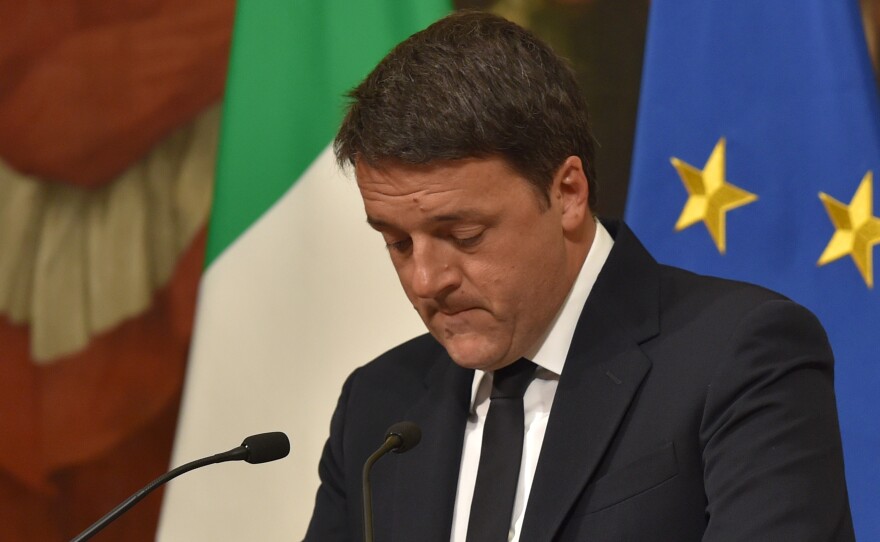Italian voters have dealt a serious defeat to the government of Prime Minister Matteo Renzi. In a referendum Sunday, they rejected Renzi's proposed constitutional reforms, which would have changed the balance of power between the executive and Parliament.
The "no" vote is expected to win by a margin of nearly 20 percentage points, in what is seen as a resounding message of discontent with Renzi's government. The lopsided result also signals the strength of anti-establishment sentiment in the country.
Renzi conceded the referendum in an address to the country, saying that he "takes full responsibility" for its defeat. In accordance with a promise he made before the vote, Renzi also announced that he intends to resign.
The 41-year-old politician had pinned his political future on the results, describing a "yes" vote as a step toward ending legislative gridlock. He campaigned aggressively before Italians went to the polls.
"If the 'no' vote wins, Italy will still have the biggest, most costly and slowest parliament in Europe," Renzi had said.
NPR's Sylvia Poggioli explained his proposals like this:
"The changes involve sharply reducing the size of one of the chambers of Parliament — the Senate — shifting its powers to the executive, and eliminating the Senate's power to bring down government coalitions."The amendments also shift some powers now held by the regions to the central government, thereby reducing frequent and lengthy court battles between Rome and the regional governments."
Many of those opposed to the changes argued they would place too much power in the hands of Italy's chief executive — a prospect opponents say the crafters of the 1947 constitution deliberately wished to avoid. In the wake of World War II, and the fall of fascist dictator Benito Mussolini, the constitution tipped the balance of power more toward the country's Parliament.
While the "no" camp drew voices from across the political spectrum — from former Prime Minster Silvio Berlusconi to members of Renzi's own Democratic Party — perhaps the most staunch resistance came from the Five-Star Movement. The anti-establishment group founded by comedian Beppe Grillo "terrifies Italy's European partners," Sylvia says.
She details the group's platform:
"It calls for a government-guaranteed, universal income, abolishing Italy's fiscal commitments to the European Union and a referendum on Italy's membership in the Euro — a prospect that could unravel the entire single currency Eurozone."
The result is likely to boost the profile and influence of the anti-immigrant group, which has been gaining in popularity in Italy. Virginia Raggi, Rome's mayor and a member of the Five Star Movement, lauded the referendum result in a tweet, saying, "Italians have won. Now we can rebuild the country. Our revolution does not end, in Rome and in Italy."
Far-right leaders across Europe have celebrated the decision, as well, interpreting it as a broad rejection of the European Union. As the BBC notes, "the referendum comes in the wake of the Brexit vote in the U.K. in June, and coincides with the rise of the anti-immigrant Front National in France and populist parties elsewhere."
Marine Le Pen, leader of the the Front Nationale, a national conservative party in France, tweeted, "The Italians have disavowed the EU and Renzi. We must listen to this thirst for freedom of nations."
Copyright 2016 NPR. To see more, visit http://www.npr.org/.






